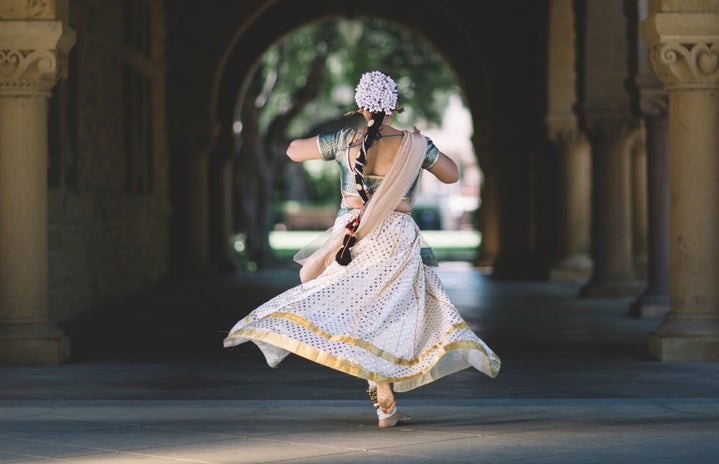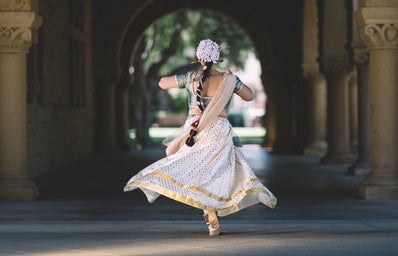Am I Too American to be Indian, or am I too Indian to be American? Throughout the entirety of my life thus far, this is the quote that I have used to identify myself, since I identify as bicultural.
If I had to describe my experience being bicultural, I would have to describe it as a game of tug of war. One side is Indian, and the other side is American. Both sides are awesome teams. I’m standing at the center of this rope, switching constantly to help either side. Both teams want me to help them pull their side, but at the same time, it’s hard to always choose a side, because I’m part of both. In simpler terms, I’ve always felt like I didn’t completely fit in into either culture. I fit into a little bit of both.
My nationality is American. I was born here and grew up here. Although my nationality is American, sometimes I found it difficult to be “completely American.” I constantly faced (and sometimes still do face) microaggressions. I sort of always knew that although I was American, I would also cherish my Indian side. Plus, I never partook in the same activities most Americans did. I didn’t go boating, I didn’t eat meat, I didn’t wear bikinis, I didn’t watch football, and I didn’t go to church. I didn’t do the things that were considered American, so I felt like I wasn’t American enough. To counter my dissatisfaction, I turned to the other side of the rope, my Indianness.
My experience with my Indian side is another complicated story. I have always appreciated the fact that my ethnicity is South Asian Indian. We have a beautiful, rich, unique culture that I will always be proud of. The clothes, food, music, dances, movies, our values, morals, traditions…I thank my parents for instilling Indian cultural values in me; however, I felt that no matter how hard I tried to be Indian, I faced discrimination from my Indian side as well. Being an ABCD (American Born Confused Desi) can indeed be confusing when you are evaluated on how Americanized you’ve become. It is common for ABCD kids to be stereotyped as uncultured or “whitewashed.” I always felt that deviating from common Indian culture in certain ways, such as wearing more revealing clothing, not liking Indian movies/songs, not knowing movie dialogues/jokes, and hanging out with non-Indian friends meant that you were a “fake Indian.”
I also find myself challenging certain Indian traditions often (standing up against colorism, being a feminist, challenging sexist traditions) which makes me appear “less Indian” and more “Americanized.” Now, that doesn’t mean that I am trying to give people a negative impression of my Indian culture. It just means that I stand up for the things that make me uncomfortable, which I would stand up for even in my American culture or any other aspects of oppression (against myself or others).
The bottom line is, I’ve learned that it’s okay to be bicultural. It’s okay to be a part of two cultures. I realized that I never had to be 100% of anything to be valid. Over time, I came to realize that I was still valid even if I didn’t feel American enough. I was still valid even if I didn’t watch every Indian movie. At the end of the day, I enjoy both my cultures, because they intermixed to create my unique identity. I hope that other bicultural people also find the spot that they are most comfortable with.

